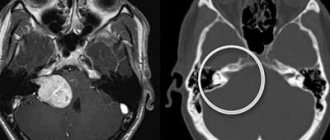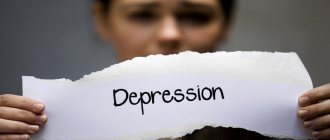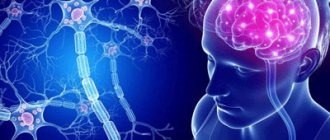Mild depression (minor, subclinical, subsyndromal, subdepression) is a form of the disease in which the symptoms are smoothed out, the manifestations are not enough to make a diagnosis of major depressive disorder. Despite the subjective deterioration in the quality of life due to dysthymia, a person retains the ability to work, the ability to self-care and normal functioning in society.
Psychiatrists and psychotherapists successfully diagnose and treat subdepression. Make an appointment by phone and bring joy and pleasure back into your life.
Causes
Mildly expressed affective disorders arise under the influence of many factors. Their development is facilitated by:
- Other mental disorders. Neuroses, hysteria, increased anxiety, PTSD and other neurotic level disorders complicate everyday life and cause mental suffering.
- Somatic pathologies. Diseases of internal organs, especially severe or numerous ones, significantly limit activity and adaptation capabilities, cause a feeling of hopelessness and anxiety for the future.
- Personal characteristics. Perfectionists, unbalanced, highly sensitive, suspicious, anxious people, people with a tendency towards codependent relationships or an increased need for control are predisposed to the development of mild situational depression.
- Stressful situations. Prolonged psycho-emotional overload has a bad effect on the state of mind, causes fatigue and eventually leads to exhaustion.
- Brain lesions. Subclinical depression is more often found in patients who have suffered a trauma, stroke or infectious disease of the brain in the past, suffer from cerebral circulatory disorders due to atherosclerosis, or have other damage to the central nervous system.
- Other reasons. An increased risk is observed in the presence of pregnancy pathologies in the mother, severe complicated childbirth. The disease most often occurs in people who have undergone major operations or suffer from chemical and non-chemical addictions.
In adolescents, changes appear against the background of sharp hormonal fluctuations, aggravated by emotional experiences. The greatest influence on the formation of subsyndromal pathology is exerted by other mental and somatic diseases, which are detected in 70% of patients. Subdepression often results from undertreated clinical depression.
How depression manifests itself
The main manifestation of depression is a persistent decrease in mood, the cause of which most often cannot be explained. The depressed mood itself is different from the grief that you experience during various misfortunes. A person suffering from depression usually cannot formulate his experiences due to the unusualness of the sensations, their difference from everything that he had previously experienced in life. Such people often resort to comparisons: “there is heaviness, stone, darkness in my soul”, “everything has lost its meaning, joy”, “life has become difficult”, “I feel as if I had a super-severe flu.”
Classification
Taking into account the etiology and characteristics of the course, the following types of mild depression are distinguished:
- Residual. It proceeds chronically, exacerbations are replaced by incomplete remissions, but recovery does not occur. More often observed with insufficient treatment of major depressive disorder.
- Post-adaptation. Neurotic symptoms predominate: anxiety, guilt, emotional lability. Becomes the outcome of reactive depression.
- Senile. It is detected in elderly patients, provoked, supplemented and aggravated by age-related changes in the nervous system.
- Somatized. The most common. Physical manifestations prevail: tachycardia, shortness of breath, constipation, diarrhea, dizziness, hand tremors. There is concern about health.
- Characteristic. Predominantly negative experiences are found throughout life. Patients have difficulty getting along with people, suffer from increased sensitivity to the opinions of others and intolerance to criticism. Possible hypochondria.
Is depression curable?
Yes, but it won't happen overnight. Depression can be successfully treated in most cases. Depending on the type of depression and the severity of the disease, treatment and the time required for recovery can vary greatly. Severe cases of depression are treated in psychiatric clinics with antidepressants and tranquilizers. Moderately severe and mild depression is treated with a combination of antidepressants and various methods of psychotherapy or psychotherapy alone. In difficult cases, complete relief from depression is possible within six months to a year. If medications are used in treatment, the time frame is reduced to 3-5 months. There is also ultra-short psychotherapy, which allows you to significantly reduce the symptoms of depression in 5-10 meetings with a psychotherapist (psychotherapeutic sessions).
Symptoms
A low mood background, a tendency to gloomy thoughts and pessimistic statements predominate. Characterized by dissatisfaction with life, increased criticism of oneself and other people, and loss of strength. Sleep is shallow, intermittent, with frequent awakenings and nightmares. Appetite is reduced.
Due to their insignificant severity, the signs may remain unrecognized and be attributed to high stress, overwork, unfavorable external circumstances or personal characteristics. The first three factors may play a role, but are not necessarily present and in this case are not the cause of situational reactions, but a triggering factor for depression. When assessing individual characteristics, it is worth proceeding from behavior over a long period of time - if a person has changed at a certain moment, this does not speak of character, but of illness.
Symptoms such as fatigue, drowsiness, irritability, egocentrism, and a previously uncharacteristic tendency to conflict behavior testify in favor of dysthymia. Emotional fluctuations, boredom, melancholy, and unreasonable feelings of guilt are noted. Fears become actualized (often groundless), and the level of anxiety increases.
A person becomes slow, inhibited, indifferent, and lacking initiative. The ability to empathize decreases. The need for dramatization and hypochondriacal manifestations are determined. As a rule, 1–2 signs are clearly presented in the clinical picture, the rest are not clearly expressed and may go unnoticed.
Main symptoms of prolonged depression
A person experiencing depression most often experiences an emotion such as sadness. She is considered key. And also a number of others, including anger, contempt, disgust, and guilt. He is often depressed, often focused on negative experiences related to the past. He constantly returns in his thoughts to those events that he believes could have happened through his fault. Throughout the entire period of depression, the patient experiences rapid fatigue, leading to a significant decrease in productivity in any type of work activity.
The danger of prolonged depression lies in possible suicide attempts and suicides.
In difficult life situations - with the loss of loved ones, betrayal of a loved one, divorce, even mentally healthy and balanced people can become depressed.
All depression is divided into two main types - endogenous, caused by biological factors, and psychogenic, with a predominance of psychosocial components.
However, all recorded the following symptoms:
- feeling of hopelessness;
- motor retardation;
- persistent reluctance to even make an effort to do anything;
- constant melancholy;
- lack of reactions to both joyful and negative events;
- distrust of family and friends, wary attitude towards work colleagues;
- in most cases, refusal of the offered help;
- self-flagellation, sleep disturbances, appetite disorders;
- apathy and longing.
For some people, individual symptoms may coincide. But this does not mean that they have prolonged depression. These are probably personality traits or character traits.
But if almost all of them coincide, you should urgently go to see a psychotherapist.
Diagnostics
The examination is carried out by a psychotherapist or psychiatrist. The diagnostic value of testing is low - the results of questionnaires often do not reveal a mild form of depression. Taking this into account, the main role in determining the nature of the pathology is played by a detailed conversation, studying the life history and identifying predisposing circumstances.
If there are somatic complaints, it is necessary to contact specialists of the appropriate profile to exclude endocrine, cardiac, gastroenterological, neurological and other pathologies. Additional studies are prescribed taking into account the detected disorders and may include laboratory tests and imaging techniques (ultrasound, CT, etc.). The recommended mandatory minimum scope of examination includes a general blood test, determination of thyroid hormones, serum iron, and sex hormones.
Cost of services
| CONSULTATIONS OF SPECIALISTS | |
| Initial consultation with a psychiatrist (60 min.) | 6,000 rub. |
| Repeated consultation | 5,000 rub. |
| Consultation with a psychiatrist-narcologist (60 min.) | 5,000 rub. |
| Consultation with a psychologist | 3,500 rub. |
| Consultation with Gromova E.V. (50 minutes) | 12,000 rub. |
| PSYCHOTHERAPY | |
| Psychotherapy (session) | 7,000 rub. |
| Psychotherapy (5 sessions) | 30,000 rub. |
| Psychotherapy (10 sessions) | 60,000 rub. |
| Group psychotherapy (3-7 people) | 3,500 rub. |
| Psychotherapy session with E.V. Gromova (50 minutes) | 12,000 rub. |
| TREATMENT IN A HOSPITAL | |
| Ward for 4 persons | 10,000 rub./day |
| Ward for 3 persons | 13,000 rub./day |
| Ward 1 bed VIP | 23,000 rub./day |
| Individual post | 5,000 rub. |
| PETE | 15,000 rub./day |
This list does not contain all prices for services provided by our clinic. The full price list can be found on the “Prices” , or by calling: 8(969)060-93-93. Initial consultation is FREE!
Treatment
The main method of treatment is psychotherapy. The direction is chosen taking into account the characteristics of the patient’s character, life history, and the presence of mental disorders. During the work, the patient, together with a specialist, finds the causes of negative experiences, gets rid of unnecessary restrictions, and learns to react to external stimuli in a new way.
Previously, it was believed that subdepression was difficult to treat with antidepressants. Nowadays the approach has changed. There are reliable studies showing the effectiveness of tricyclic antidepressants and SSRIs. The duration of the course is determined individually and is at least six months.
To normalize sleep, sleeping pills, tranquilizers or sedatives based on herbal ingredients are recommended. When memory and cognitive abilities deteriorate, nootropics are used. The state of mild depression can be corrected by changing your daily routine, eating a nutritious diet, regular exercise and spending time in the fresh air.
With timely initiation of therapy, the prognosis is favorable. To prevent dysthymia and prevent relapses, reasonable planning, building friendly relationships in the family and at work, and expanding your social circle are recommended. It is worth thinking in advance about possible ways to support and self-support during difficult periods or when strong experiences arise.
The psyche of each person is unique. The specialists at the Leto clinic know how to deal with depression and will select the appropriate option for any type of dysthymia. Registration is carried out by phone. 8(969)060-93-93.
Depression
Most often, depression develops against the background of stress or a long-term traumatic situation. Often depressive disorders are hidden under the guise of a bad mood and character traits. In order to prevent serious consequences, it is important to understand how and why depression occurs.
Causes of depression
Depressive disorders can appear at any age and in representatives of any social group. This is explained, first of all, by the fact that the values of modern society exert significant pressure on a person. People strive for social well-being, professional success, and external attractiveness. If this cannot be achieved, a person may fall into despair, have a hard time experiencing failures, and, as a result, depression develops. Severe psychological trauma, such as the death of a loved one, family breakdown, breakup of a relationship with a loved one, or serious illness, can also lead to depressive disorder.
In rare cases, depression occurs without any obvious cause. Scientists suggest that in such situations, the characteristics of neurochemical processes play a role, in particular, the exchange of neurotransmitters (serotonin, norepinephrine, etc.).
Symptoms of depression
The emotional manifestations of depression are very diverse. These include feelings of anxiety, despair, and decreased self-esteem. A person suffering from depression experiences constant fatigue and sadness. He ceases to be interested in what previously brought him joy and becomes indifferent to others.
The behavior of patients also changes. Depression can be suspected if a person loses the ability to take purposeful actions and cannot concentrate. A person who is sociable and cheerful by nature, falling into depression, begins to avoid contact with friends and relatives, “locks himself within four walls.” Often there is an attachment to alcohol and drugs.
Patients with depression also have some peculiarities of thinking. Thoughts about oneself become negative, a person becomes fixated on the negative aspects of his life, considers himself unnecessary, worthless, and a burden to relatives. It is difficult for the patient to make decisions on his own.
In addition to changes in the emotional sphere, depression is also characterized by physiological (somatic) manifestations. Most often, the sleep-wake pattern is disrupted and insomnia occurs. Appetite may disappear completely or, conversely, intensify and lead to overeating. Patients complain of pain in the heart, stomach, and suffer from constipation. The body's energy reserves noticeably decrease, and patients quickly become overtired even with minor physical and mental stress. Sexual disorders often occur.
Complications
Unfortunately, alcoholism and drug addiction are very often caused by depressive conditions. Alcohol and drugs give the patient a false sense of well-being. Depression also underlies a variety of social phobias (fear of losing a loved one, fear of being in a public place), and in severe cases can lead to suicidal thoughts and attempts.
What can you do
First of all, you need to know that depression can and should be fought.
If you notice that one of your loved ones begins to criticize themselves too often, conflicts with family members, work colleagues, or experiences an inexplicable feeling of fear, you should consult a doctor. If a patient is diagnosed with depression, he needs to be supported and try to cheer him up, even if he himself is not interested in this. The patient’s relatives must understand that depression is a transient condition in which they need to provide psychological help without plunging into the disease themselves. Try to convince the patient that it is not his fault that he has depression. Together you will cope with this difficult condition.
What your doctor can do
Without treatment, depression can last for months or even years. The basis of treatment is the use of medications and psychotherapy.
Medicines for the treatment of depression (antidepressants) are selected individually for each patient and are taken long-term, for several months. Drug treatment will be successful if the patient strictly adheres to the recommended medication regimen.
The goal of psychotherapy is to help a person learn to regulate their own emotions. This method of treatment involves the active participation of the patient himself, his willingness to talk about his problems. All information received by the doctor during a psychotherapy session remains secret.
Prevention of depression
In order to prevent the development of depression, you need to learn to overcome stressful situations. A healthy lifestyle, regular exercise, proper work and rest schedule - this is what will help fight stress and maintain peace of mind!
1. Depressed mood, especially in the morning
Sometimes depression manifests itself only in the form of mild sadness, in other cases there is deep depression, to the point where symptoms appear on the physical level, most often pain and a feeling of heaviness in the chest. In difficult cases, it seems that it is simply impossible to live further.
These symptoms are most severe in the morning. It may get better in the evening.
2. Feelings of guilt, feelings of worthlessness
Being able to admit your guilt is a trait of a strong person, but looking for it in literally every action and constantly thinking about it is one of the signs of depression.
The same record plays in my head all the time. A person remembers over and over again situations in which he made a mistake or acted “badly.” He thinks that he is useless and no one needs him. He constantly “anticipates” a misfortune for which he himself is supposedly to blame.
3. Decreased concentration and indecisiveness
Don't have time to cope with important things? When a person is depressed, it is difficult for him to focus on current tasks. It takes a lot of effort to make a choice and a decision. The brain is so immersed in a state of sadness and internal emptiness that there is simply no strength or time left for anything else.
4. Sleep disturbance
Depression can cause you to sleep too much or too little. If you constantly feel like a lemon, you will sleep more than usual. Some people “run away” to sleep from sadness and bad thoughts.
In other cases, disturbing negative thoughts, on the contrary, prevent you from falling asleep and cause sleep deficiency and insomnia.
In turn, if a person does not get enough sleep, his internal clock - biorhythms - gets confused, and he feels even more tired, and his concentration is more impaired. It turns out to be a kind of vicious circle.
5. Inability to enjoy what once made you happy.
If you used to like something, but now you don’t enjoy it at all, this most likely indicates depression.
6. Change in body weight
Some people with depression lose weight, others gain weight. This is largely due to changing eating habits. Because of negative thoughts, you may forget to eat on time, or you simply don’t feel like it, or don’t want to cook food. Sometimes the opposite situation is observed: food becomes a means that helps, at least temporarily, to at least slightly lift your mood.
7. Anxiety, increased anxiety
These are symptoms of an anxiety disorder, but sometimes they indicate depression.
People with depression often experience anxiety - a feeling of impending danger, unpleasant premonitions, and some experience panic attacks. These conditions arise for no apparent reason and are accompanied by obsessive thoughts.
At the physical level, increased anxiety manifests itself in the form of increased heartbeat, sweating, and sleep disturbances.
8. Unexplained pain in different parts of the body
Depression may cause headaches, pain and “cramps” in the stomach, nausea, and pain in the neck and back.
Everything is complicated with pain - they can be caused by hundreds of different reasons: diseases of internal organs, nerve damage, neuroses, mental disorders. If you are sure that you do not have any illnesses, and you cannot explain the cause of the pain, there is reason to suspect depression. An examination will help clarify the diagnosis.
9. Thoughts of suicide
This is the most dangerous symptom of depression. This also includes a reluctance to live, but without suicidal thoughts. This is an exception to the general rule: even if you have no other symptoms from the list, but within two weeks you regularly think about suicide, you need to see a doctor.
Print Email









